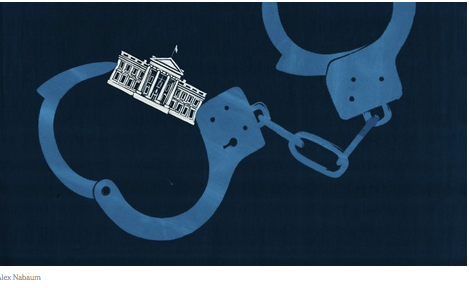One of the perplexing questions of constitutional law is what to do about a sitting president who is suspected of having committed a crime. This much is clear: A sitting president should not be required to submit to a criminal trial, an undertaking that would be incompatible with the duties of the nation’s chief executive.
That should not, however, preclude a grand jury from indicting a president when the facts and the law warrant, even if the trial itself has to be postponed until he or she is no longer in office.
An indictment in this context serves a critically important purpose: Without it, the usual five-year statute of limitations for most federal crimes would elapse, forever precluding a president from being held accountable for potentially serious crimes. Thus, a president should be indictable unless he agrees to waive any future defense that the statute of limitations expired during the president’s term.
There is nothing in the constitutional text or judicial precedent that provides for a categorical bar to the indictment of a sitting president. The closest the Supreme Court has come to addressing the question was in Clinton v. Jones in 1997, in which the issue was whether a president could delay until the end of his term a civil suit by a private individual. I argued Clinton v. Jones for the United States, urging the court to hold that a civil trial would unduly impair a president’s ability to carry out his duties. The court unanimously rejected that position.




